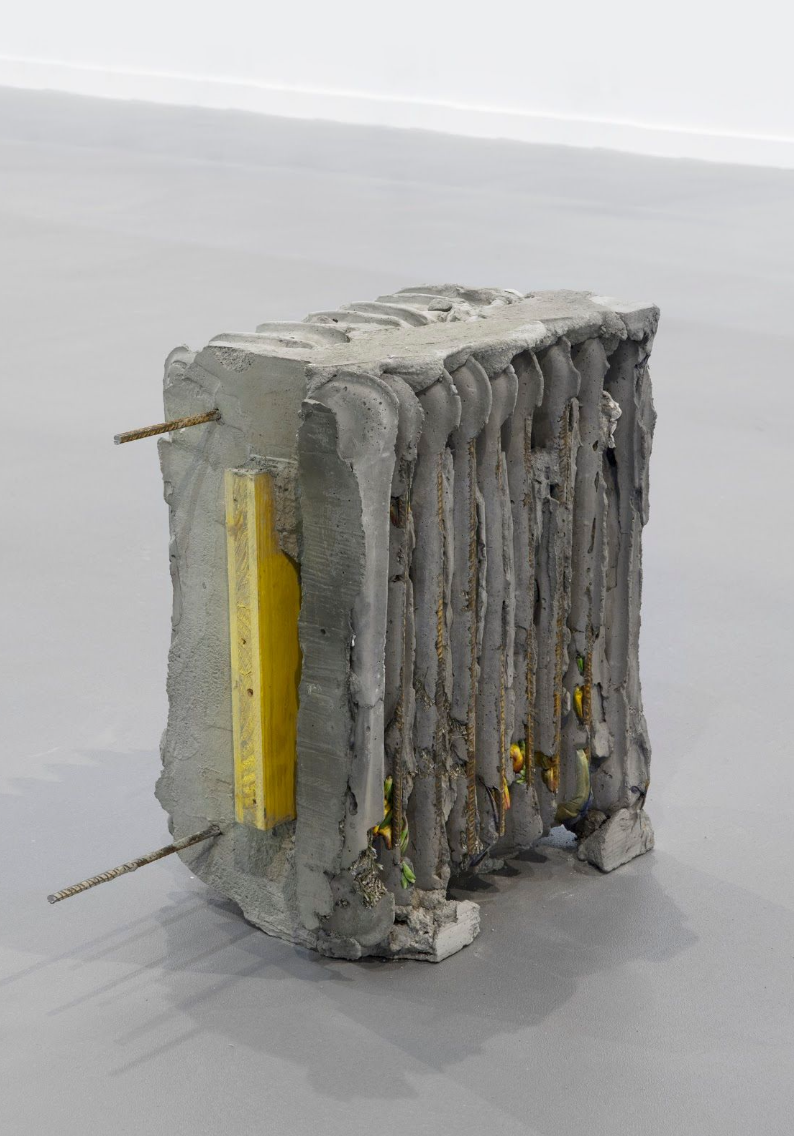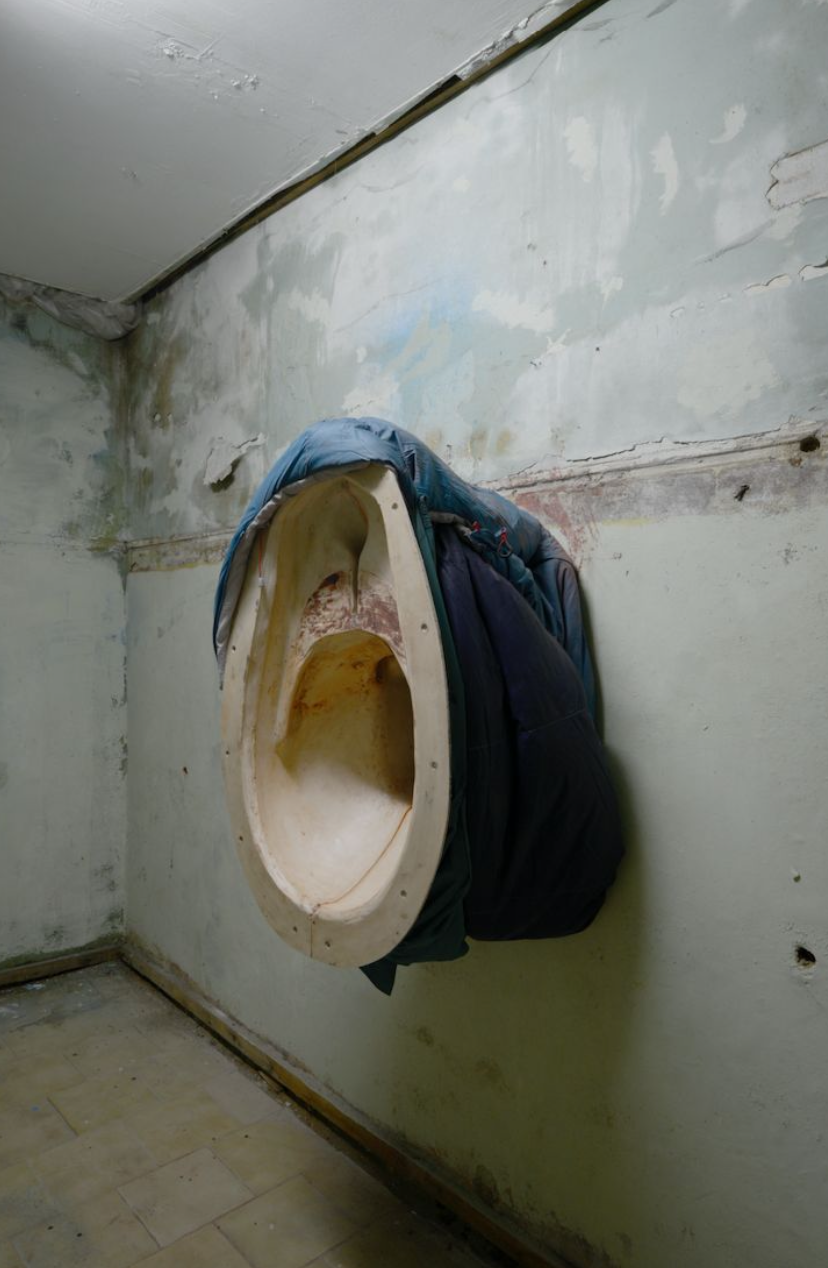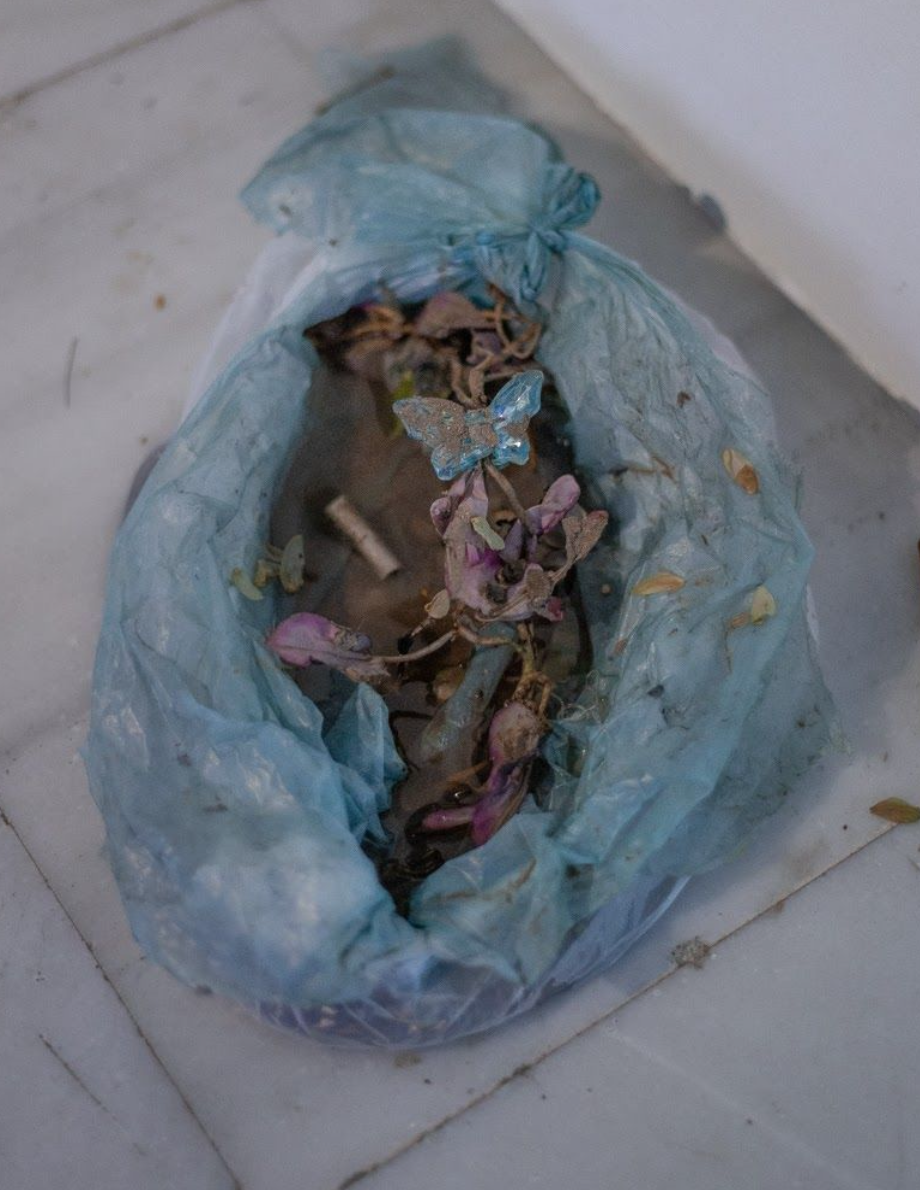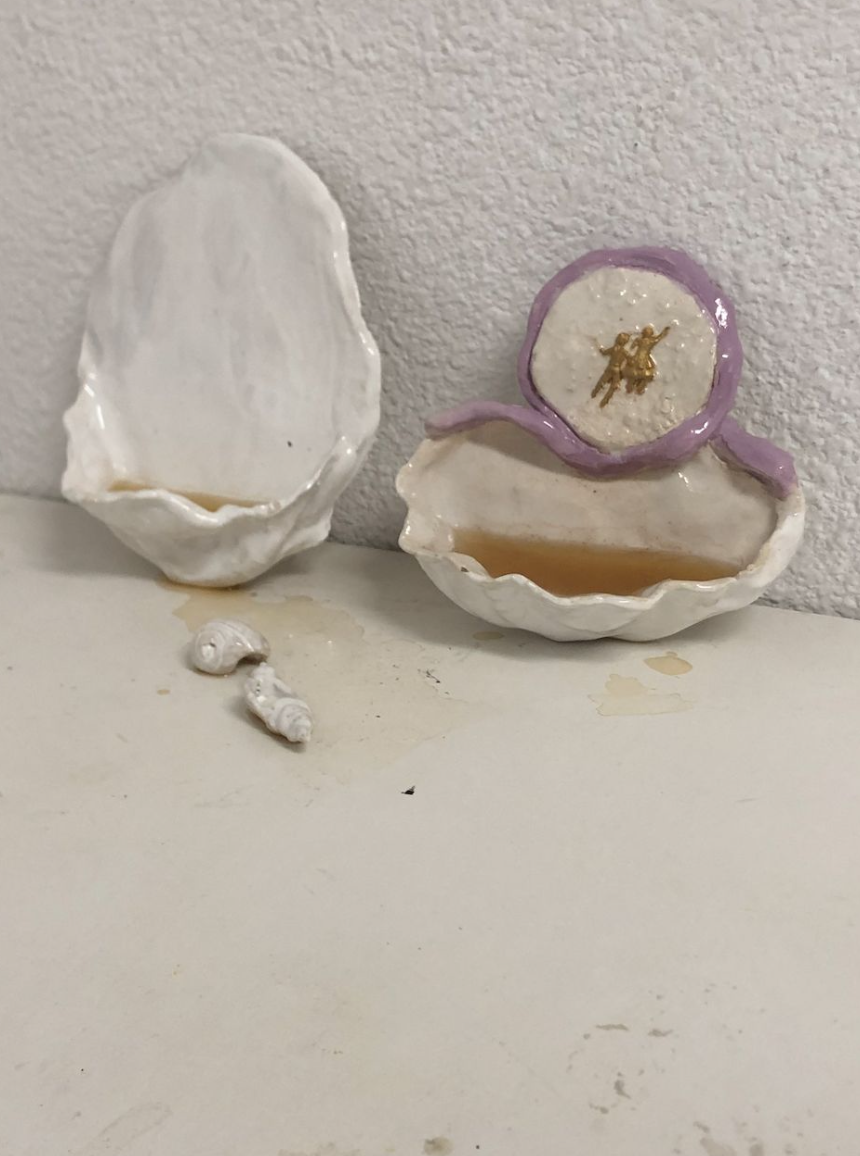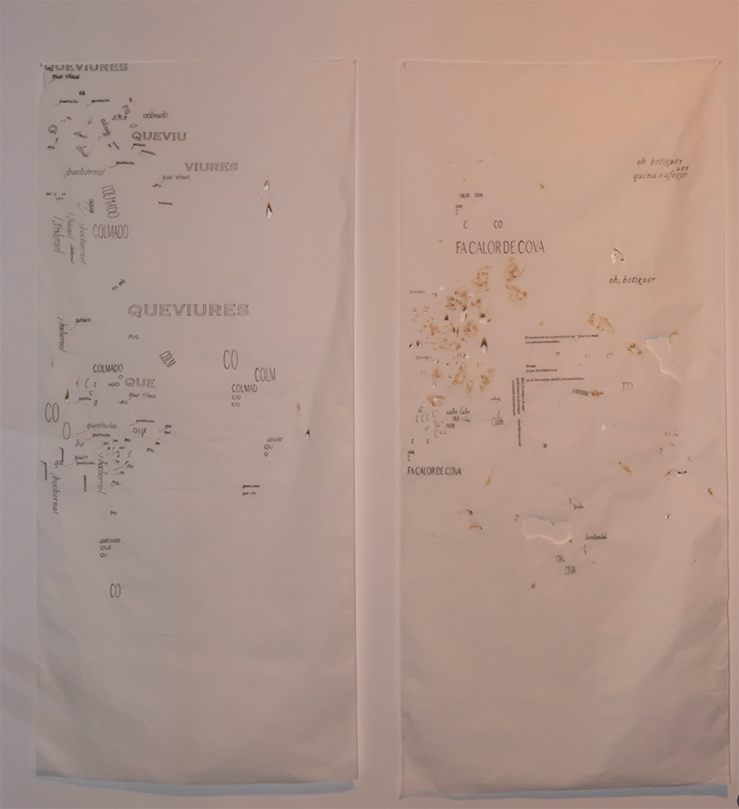YC
RP
FS
RR
Young Curators Residency Programme
Since 2020, Fondazione Sandretto Re Rebaudengo promotes the Young Curators Residency Programme Madrid. The project aims to support emerging curatorial practice while spreading knowledge of the Spanish art scene on an international level. The YCRP Madrid stems from the experience of the Young Curators Residency Programme Torino, that takes place every year in Italy since 2007.
Young Curators Residency Programme 2020 Curated by Alejandro Alonso Díaz
CentroCentro, Madrid November 26, 2020 – January 3, 2021
Lifting Belly
Lifting Belly situates itself in the Palacio de Cibeles, a building which was historically nicknamed by madrileños ‘Our Lady of Communications’ because of its monumental character and the reverence it inspired. The building dates back to 1904, when the controversial construction of this new technological nerve centre swallowed a part of the Buen Retiro park, depriving the city of an important leisure space. As the central node of the communication system in Spain, the building was regarded as a powerful symbol of national progress, modernity and centralisation.
Invoking Cybele, the Anatolian matriarchal goddess of wild nature, fertility and healing after which the building is named, we read the ‘communication’ which takes place in the palace as something passing from one thing to another, the way heat is conducted and disease is transmitted. Lifting Belly imagines the building as a system of digestive, reproductive and metabolic processes, which transform the bodies that move through it, whilst they too contaminate it.
Unfolding the corporeal fixtures of this living breathing architecture – pipes, vents, drains, radiators, entrances, exits – the artworks in this exhibition permeate boundaries between interior and exterior, collapsing multiple scales: from the microbial self to the infrastructures designed to regulate and choreograph the body through regimes of health, moral hygiene and toxicity.
As the stones of the Palace of Communications were being laid, Gertrude Stein began writing her poem Lifting Belly in Majorca where she momentarily lived with her lover Alice B. Toklas. We take our title from here – departing from Stein’s erotics of language in which poetry is queer, live and circulatory, the palace and the poem are drawn together as objects both conceived in the context of the modernist project and the regimes on the body, sexuality and obediency that came with it.
In Stein’s Lifting Belly, she describes how she is heavy with the weight of the poem inside her and full with desire, then later how it is born and “always being born”. This metaphorical ‘pregnancy’ connects language back to our tongues, breath and our stomachs, describing the generative process of writing as something fertile and always in a process of leaving and reentering the body. Stein’s use of the word terminus does not signify an end to reproduction but a term in us – a word that lives within us. The belly, or the gut, as a place that brings forward new life.
In the exhibition, materials, sculptural forms and language become compost to feed new forms. In a constant process of transformation, digestion, regurgitation and renewal the works are endlessly cannibalising, always changing state and never arriving, refusing identification and rendering the contours of an object or individual difficult to discern.Lifting Belly transports us to the stomach of the palace where we join with dust, heat, moisture, fluid and the flesh of modern architecture. In a live, erotic circulation, objects and language infiltrate our sensing bodies in a process that is poetically regenerative and always becoming.
Curators
Marta Cacciavillani
Marta Cacciavillani (Italy, 1991) is a curator, writer, and editor based in Milan. Her current research traces forgotten and silenced histories of political resistance and collective learning. She is particularly interested in time-based practices that sit at the intersection of literature, popular culture, and technology, with an emphasis on engaging queer, and decolonial discourse. Cacciavillani has held curatorial positions at Art in General, New York; The Vera List Center for Art and Politics, New York; and Serpentine Galleries, London, among others. Between 2015 and 2017, she was managing editor of the online journal, aCCeSsions. She has curated exhibitions, film screenings, performances, and panels at institutions including Anthology Film Archives, P! Gallery, The Knockdown Center, and ISCP, all in New York; NYUAD Art Gallery, Abu Dhabi; the Hessel Museum of Art, Annandale-on-Hudson; and LimeWharf, London. She holds a BA from Central Saint Martins in Criticism, Communication and Curation of Art and Design, London; and an MA from the Center for Curatorial Studies, Bard College, New York.
Lxo Cohen
Lxo Cohen (UK) is a London-based curator whose research interests explore histories, theories and practices current to performance, identity politics and the intersections of queer and decolonial thinking. Cohen is currently involved in Windows into Worlds, an ongoing collaborative research project with a team of performance theorists, researchers, academics and curators between the UK, US and Singapore presenting audiovisual exhibitions and installations showcasing new connections between performance and digital video alongside open ‘video labs’. Cohen worked as an assistant curator at the CAC Vilnius and as Heidi Ballet’s research curator for The Morality Reflex (2016), an exhibition addressing body politics and morality as something corporeal, its research surveying moments like the AIDS crisis, the history of birth control, and witch hunts in 15th century Europe, when moral values were being questioned and redefined. Cohen has independently and collaboratively organised exhibitions and performances at 310 New Cross (2018), Goldsmiths CCA (2018), Chisenhale Studios (2018), DKUK (2016), Guest Projects (2012). Cohen is also a member of the London-based curatorial collective To Whom This May Concern.
Laura Plant
Laura Plant (UK, 1992) is a curator, writer and designer based between London and Glasgow. She is interested in addressing communal learning and obscured forms of knowledge through curating. Her research looks at art practices which trace the material compositions and social architecture of trade, biosocial histories and political resistance, cultivating an expanded ecological thinking. In 2019 she completed the MFA Curating at Goldsmiths College having previously studied at Falmouth University. She is currently part of a research group at the Horniman Museum and a member of the curatorial collective To Whom This May Concern, who run a peripatetic programme in London. In an ongoing research project Tending the shy weed, which looks at the transitory lives of plants in a globalised world, she curated a programme at the South London Botanical Institute. Other recent curatorial projects include collaborations with Tenderbooks, Chisenhale Studios, Women’s Art Library, Enclave and activist organisation Platform. She has previously held positions at New Contemporaries (London), Mary Mary (Glasgow) and The Pipe Factory (Glasgow). In 2019 she took part in the Guapamacátaro Art & Ecology research residency in Michoacán, Mexico.
Coordinator
Alejandro Alonso Díaz
Alejandro Alonso Díaz is a curator, writer and researcher whose work explores the metabolic encounters between natural, social and poetic structures of knowledge.
He is the director of fluent, a para-institution dedicated to artistic research which lent its research approach to exhibitions with Mariana Silva, Laida Lertxundi, Timothy Ivison & Julia Tcharfas, Claire Pentecost Paul Maheke, Louisa Martin and Tamara Henderson and many others. Alejandro’s writing on art, moving image and nature has been published in major cultural publications including Frieze, Mousse, Terremoto and The Stedelijk Museum Journal, as well as in many exhibition catalogues.
Artists
- Alfonso Borragán
Alfonso Borragán’s artistic practice is articulated between research, teaching, collective processes and performative action. His work looks at and activates the relational systems that human beings generate with the earth, mainly through collective processes and actions. Her practice manifests itself within the fragility of the collective and the ephemerality of action, as a latent image in constant change.
His latest works have been shown at the Museo Nacional de Arte and the CCELP in La Paz (Litofagos-Goalito); El Centro Botín in Santander (Halito); Emerson Dorsch in Miami (Bucarolito); Fundación Joan Miró in Barcelona (Alterbees); Kontejner in Zagreb (Daguerrolito); Plataforma Bogotá (Fosfofagia 04) and Khoj Artist Association, New Delhi (Fosfofagia 03). He lives and works in London where he teaches Art and Interdisciplinarity in the Department of Science and Art at University College London.
- June Crespo
June Crespo (Pamplona1982) lives and works in Bilbao. Obtained her BFA from the Basque Country university (Bilbao) in 2005 and completed a two years residency at De Ateliers (Amsterdam) in 2017. Her solo shows include: Their weft, the grass (2024) at 1646.nl, The Hague; Vascular (2024) at Guggenheim Bilbao Museum; they saw their house turn into fields (2023) at CA2M, Madrid; Acts of Pulse (2022) at P420, Bologna; entre alguien y algo (2022) at CarrerasMugica, Bilbao; Am I an Object (2021) PA///KT (Amsterdam); Helmets (2020) Artium, Basque Museum-Center of Contemporary Art, Vitoria-Gasteiz; No Osso (2019) at Certain Lack of Coherence, Porto; Ser Dos (2017) and Cosa y tú (2015) at CarrerasMugica gallery in Bilbao. Recently her work has also been shown in group such as: L´écorce (2023) at CRAC-Alsace; The Milk of Dreams (2022) at Venice Biennale; Fata Morgana (2022) Jeu de Paume (Paris) and The point of Sculpture (2021) at Fundación Miró (Barcelona).
![]()
June Crespo. The same heat, 2018
Cemento, pigmentos,
acero, flores
Concrete, pigments, steel,
flowers
Cortesía de Galería P420
Courtesy of P420 Gallery![]()
June Crespo. No Osso, 2019
Resina, fibra de vidrio, tela
Acrylic resin, fiberglass, fabric
Cortesía de Galería P420
Courtesy of P420 Gallery - Marina G. Guerreiro
Using media such as sculpture, drawing, painting and video to create installations, Marina González Guerreiro explores how major narratives are inserted in everyday settings through the subjectivisation and re-signification of objects. Her creative process is based on the accumulation of materials, turning the studio into an experimentation space populated by objects with the most diverse origins. Constructed out of precarious and recycled materials, her practice denotes precision and the search for a balance between order and disorder, control and chance.
![]()
Marina G. Guerreiro. Charcos, 2020
![]()
Marina G. Guerreiro. Benditera, 2020
- Ariadna Guiteras
- Martin Llavaneras
- Carlos Monleón
- Claudia Pagès Rabal
Claudia Pagès Rabal is a visual artist, performer, and writer based in Barcelona. Her work has been exhibited at spaces such as Chisenhale, London (2025); Manifesta 15, Barcelona (2024); IVAM, Valencia (2024); Sculpture Center, New York (2024); CA2M, Madrid (2023); Fundació Joan Miró, Barcelona (2023); Tabakalera, Donostia (2022); Vleeshal, Middelburg (2022); MACBA, Barcelona, (2022); CAPC, Bordeaux (2022); Kunstverein Braunschweig, Braunschweig (2021); Sharjah Art Foundation, UAE (2018); and has a forthcoming solo exhibition at mumok, Vienna and Index, Stockholm. She published her hair (2020) with Onomatopee; Rats and Roaches (2020) with Jupiter Woods, Yaby, AC/E. Her first novel, Més de dues aigües, was published in Catalan by Empúries Narrativa in 2024, and will launch a new book with Wendy’s Subway in 2025. Pagès was awarded the Ojo Crítico Visual Arts Award in 2022, and has been an artist-in-residence at Gasworks, London (2017) and Triangle France, Marseille (2020)
![]()
Claudia Pagès Rabal. Patio de Luces, 2020
- Blanca Pujals
Blanca Pujals is an architect, spatial researcher, writer and filmmaker. Her cross-disciplinary practice uses spatial research and critical analysis to engage with questions around the geopolitical configurations of contemporary techno-scientific infrastructures, geographies of power on bodies and territories and the geopolitics of materials. Her work encompasses film, architecture, lecturing, curatorial projects, teaching and critical writing.
She holds a GArq and MArq in Architecture from ETSAB (UPC) Barcelona, an MA in Critical Theory and Museum Studies from the Independent Studies Programme of MACBA Museum, tutored by the philosopher Paul B.Preciado and an MA with distinction from the Centre for Research Architecture (Visual Cultures Department) at Goldsmiths, University of London, directed by Susan Schuppli and Eyal Weizman. In 2024, she was awarded her fully-funded practice-based PhD in Art&Science(Philosophy, Visual and Material Cultures) with the project ‘Sensing Infrastructures: A spatial examination of soft power, the neutrino particle and underground fundamental physics laboratories’. - Victor Ruiz Colomer
- M Reme Silvestre
- Leticia Ybarra
Jury
Lucía Casani
Lucía Casani (Madrid, 1978) graduated in Audiovisual Communication from the UCM. Between 1997 and 2001, she has participated in numerous film and advertising shoots within the management department. In 2002 Casani joined the culture team of the newly founded La Casa Encendida to launch the audiovisual area, which she coordinated between 2002 and 2009. Since 2014 she is the director of La Casa Encendida.
Marta Rincón
Marta Rincón is director of Programmes at Acción Cultural Española. She graduated in Art History by the Universidad Autonoma de Madrid. She earned a Master in Museology from the Camuñas Foundation and a Postgraduate in Cultural Management from the University of Deusto. She has developed her professional work in different public institutions such as Arteleku, the Ministry of Foreign Affairs and Cooperation and the Sociedad Estatal para la Acción Cultural Exterior (SEACEX) in which she created and directed the contemporary art department from 2005 to 2011.
Manuel Segade
Manuel Segade is director of Centro de Arte Dos de Mayo (CA2M) in Móstoles, Madrid. Prior to that, he was chief curator at the Centro Gallego de Arte Contemporanea from 2007 to 2009, and has since been working as a freelance curator, writer and lecturer. Among other projects he curated the show Motion/Labour/Machinery, at TENT Rotterdam and was the curator of Opening, the international section for emerging galleries at ARCO Madrid between 2012 and 2014.
ycrp.fsrr.org
©2026 Fondazione Sandretto Re Rebaudengo

